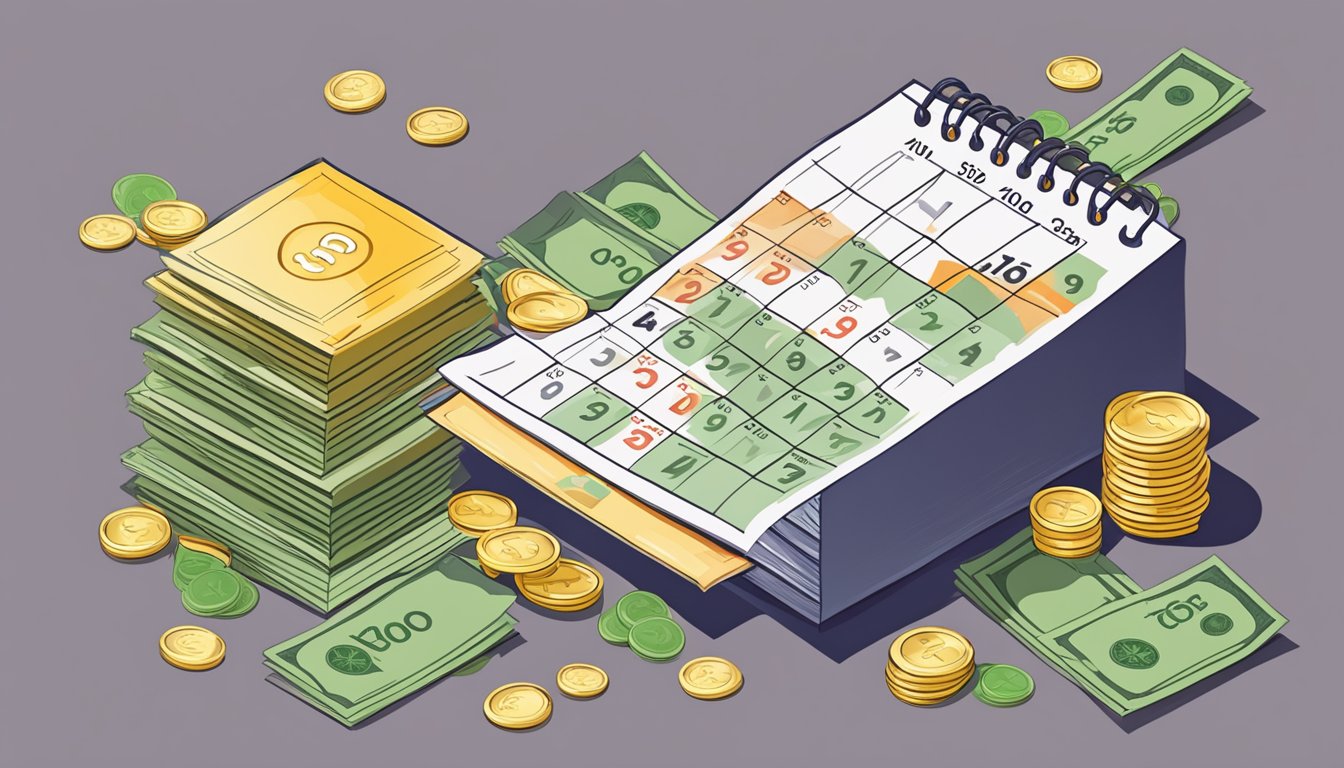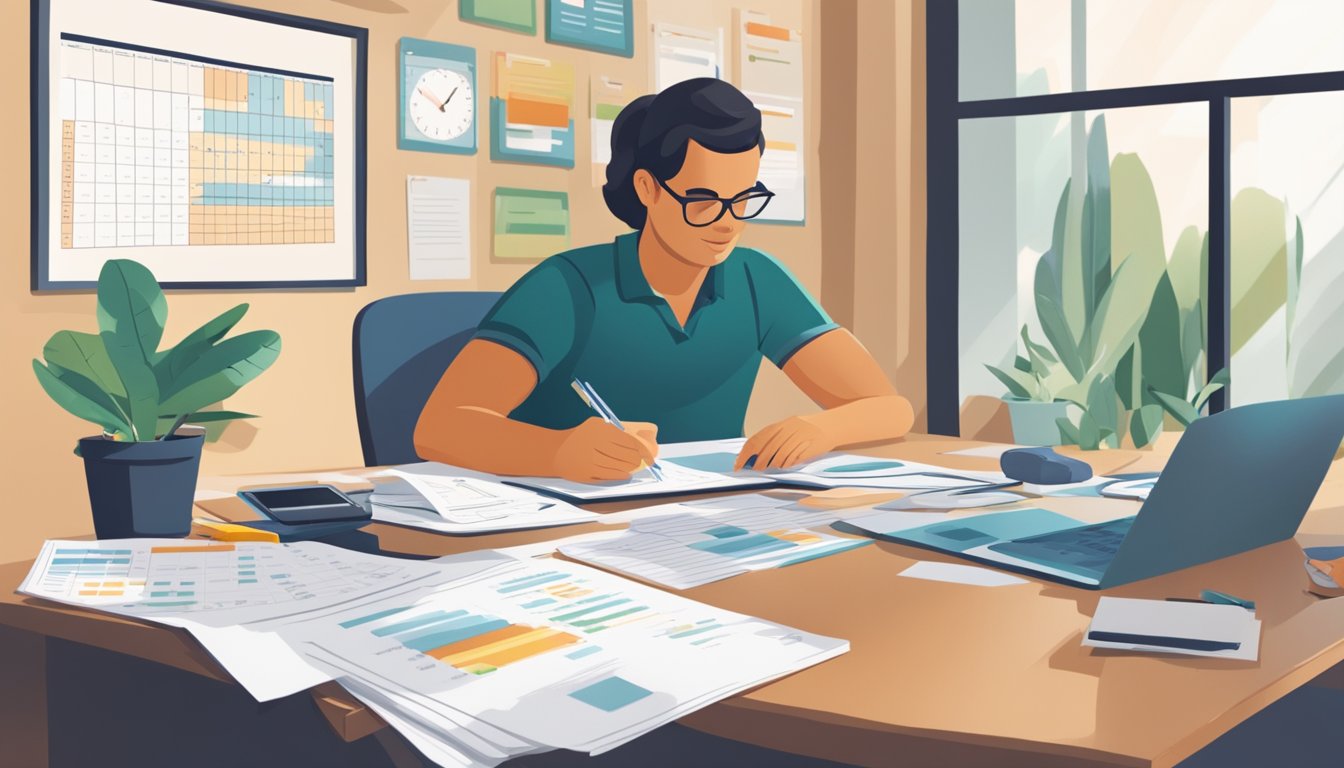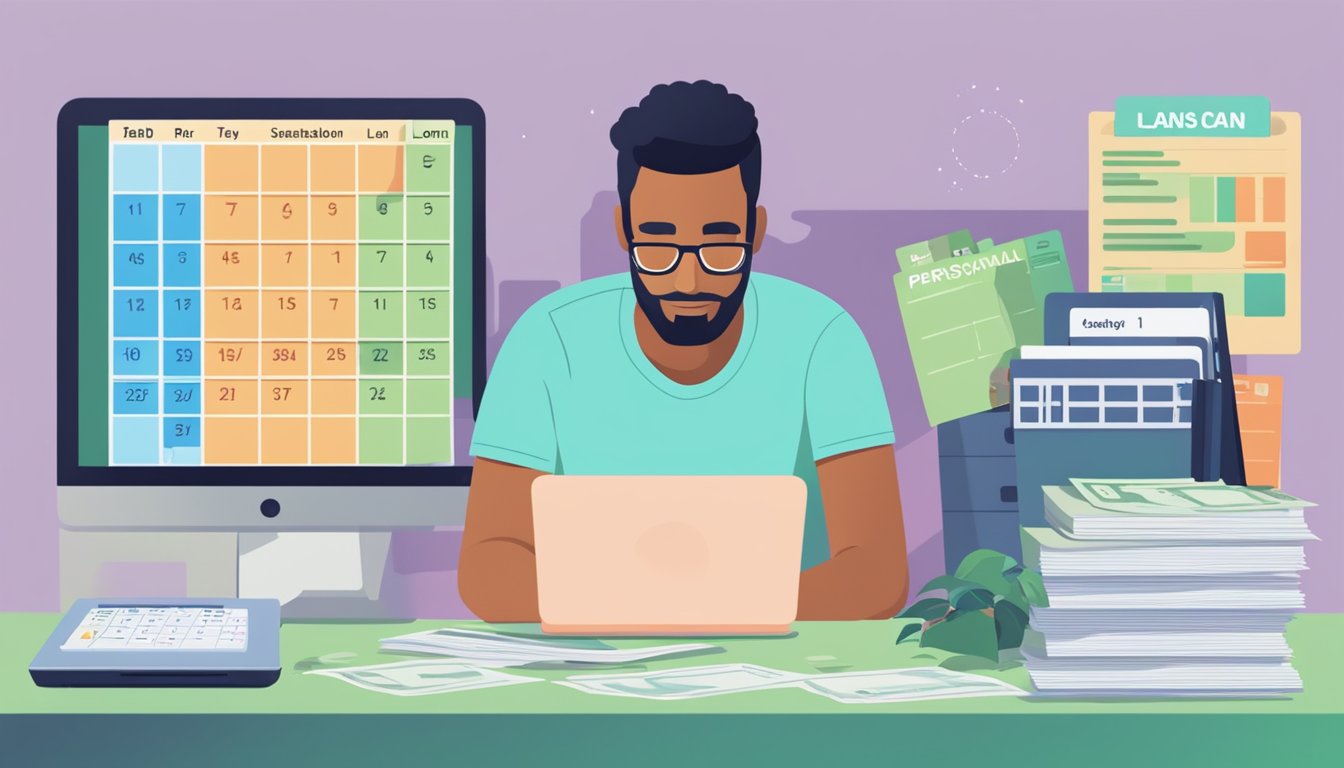
If you’ve ever taken out a personal loan, you may be wondering when you need to start paying it back. Understanding the repayment process is crucial to ensure that you don’t fall behind on payments and damage your credit score. In this article, we’ll provide you with all the information you need to know about paying back personal loans so that you can stay on top of your debt.
Understanding Personal Loan Repayment:
When you take out a personal loan, you’ll typically have a set amount of time to pay it back, along with a fixed interest rate. The repayment period can range from a few months to several years, depending on the lender and the amount borrowed. Your lender will provide you with a repayment schedule that outlines how much you need to pay each month, including the principal and interest.
Strategies for Paying Off Personal Loans:
There are several strategies you can use to pay off your personal loan faster and save money on interest charges. One popular approach is to make extra payments whenever possible. For example, if you receive a bonus at work or a tax refund, you can put that money towards paying off your loan. Another strategy is to refinance your loan to get a lower interest rate or extend the repayment period.
Key Takeaways
- Personal loans come with a fixed interest rate and a set repayment period.
- It’s important to make your payments on time to avoid damaging your credit score.
- Strategies for paying off personal loans include making extra payments and refinancing to get a lower interest rate.
Understanding Personal Loan Repayment

If you have taken out a personal loan, it is essential to understand how the repayment process works. This section will help you understand the different aspects of personal loan repayment, including initiating repayment, interest rates, and credit score influence.
Initiating Repayment: When and How
Most personal loans have a repayment period of one to five years. You will typically begin repaying your loan one month after you receive the funds. However, some lenders may offer a grace period of up to three months before you start repaying your loan.
To initiate repayment, you will need to set up a repayment plan with your lender. This can be done through automatic payments or manually through your lender’s online portal. It is essential to ensure that you make your payments on time to avoid late fees and damage to your credit score.
Interest Rates and Their Impact on Repayment
Interest rates are a crucial aspect of personal loan repayment. They determine how much you will pay in interest over the life of your loan. The interest rate for your personal loan will depend on various factors, including your credit score, income, and loan amount.
It is essential to understand how interest rates work and how they impact your repayment. The higher the interest rate, the more you will pay in interest over the life of your loan. Therefore, it is crucial to shop around for the best interest rate before taking out a personal loan.
The Influence of Credit Score on Loan Terms
Your credit score is a crucial factor in determining your loan terms, including your interest rate and repayment period. A good credit score can help you secure a lower interest rate and a more favourable repayment period.
It is essential to maintain a good credit score to ensure that you have access to the best loan terms. You can check your credit score for free through various credit reporting agencies, such as Experian and Equifax.
In conclusion, understanding personal loan repayment is crucial to ensure that you can manage your debt effectively. By understanding how to initiate repayment, the impact of interest rates, and the influence of your credit score, you can make informed decisions when taking out a personal loan.
Strategies for Paying Off Personal Loans

If you have taken out a personal loan, it is important to have a plan in place for repaying it. Here are some strategies that can help you pay off your personal loan faster:
Budgeting for Successful Loan Repayment
Creating a budget is a crucial step towards successful loan repayment. Start by looking at your monthly income and expenses to determine how much money you can afford to put towards your loan payments each month. Make sure to include your loan payments as a fixed expense in your budget. If you find that your loan payments are too high, you may need to cut back on other expenses to make them more affordable.
Benefits of Making Extra Payments
Making extra payments on your personal loan can help you pay off your debt faster and save money on interest charges. Even small extra payments can add up over time and help you pay off your loan sooner. Consider setting up automatic payments or making bi-weekly payments to help you stay on track.
Prepayment Penalties and How to Avoid Them
Some lenders may charge prepayment penalties if you pay off your loan early. These fees can be costly and can negate any savings you would have earned by paying off your loan early. Before you make extra payments or pay off your loan early, check with your lender to see if they charge prepayment penalties. If they do, consider waiting until the penalty period has expired before making any extra payments.
By following these strategies, you can save money on interest charges and pay off your personal loan faster. Remember to always make your loan payments on time and stay within your monthly budget to avoid falling behind on your payments.
Frequently Asked Questions

How soon after receiving a personal loan must I begin repayments?
Typically, you will be required to begin repaying your personal loan within a month of receiving the funds. This may vary depending on the lender, so it’s important to check the terms and conditions of your loan agreement.
What are the benefits of settling a personal loan ahead of schedule?
By settling your personal loan ahead of schedule, you can save money on interest payments. Additionally, it can improve your credit score and make you more attractive to lenders in the future.
Are there any financial penalties for early settlement of a personal loan?
Some lenders may charge a penalty fee for early settlement of a personal loan. It’s important to check the terms and conditions of your loan agreement to see if this is the case.
How is the interest calculated if I decide to repay my personal loan early?
If you decide to repay your personal loan early, the interest will be calculated based on the amount of time you had the loan and the amount of money you borrowed. This may result in a lower interest rate, which can save you money on your repayments.
What’s the typical duration for repaying a personal loan?
The typical duration for repaying a personal loan can vary depending on the lender and the amount of money borrowed. Most lenders provide repayment terms between six months and seven years.
Is it possible to immediately repay a personal loan upon receiving the funds?
Yes, it is possible to immediately repay a personal loan upon receiving the funds. However, it’s important to check the terms and conditions of your loan agreement to see if there are any penalties or fees associated with early repayment.




